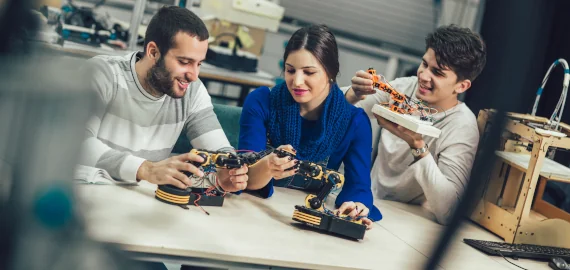
Waste-to-value devices: Circular production of renewable fuels, chemicals and materials
Up to 4.000.000€
Description
The main goal of this opportunity is to develop advanced technologies that turn challenging waste streams into valuable resources, supporting a future circular economy. The focus is on non- or hard-to-recycle synthetic polymers, flue gases, wastewater, and brines from seawater desalination. Projects should deliver scalable solutions that are easy to apply and create products with greater economic value than simply destroying the waste. Key aims include reducing fossil fuel dependence, lowering environmental impacts, and enabling local production of fuels, chemicals, and materials within the European Union and Associated Countries.
Admissible Projects
- Projects must address one of three focus areas: fully integrated waste-to-value devices, fundamental understanding of mechanisms using computational material science and AI, or synthetic biology for tailored microbial cell factories.
- Proposals must come from eligible applicants: either single legal entities or consortia from Member States or Associated Countries. Consortia must meet specific requirements regarding the number and location of partners.
- Projects must exclude thermochemical approaches (e.g., pyrolysis, gasification), chemical recycling, and certain waste types (food, biomass, traditional bulk metals, glass, paper, cardboard, mono-PET).
- Proposals must take a holistic approach, benchmark against current recycling, and demonstrate energy and material efficiency, sustainability, and scalability.
- Projects must aim to reach Technology Readiness Level (TRL) 4 within 3–4 years and address the entire waste-to-value process.
- Single-beneficiary projects cannot be led by mid-caps or larger companies.
Examples:
- Developing a solar-powered device that converts plastic-rich waste into renewable fuels for local communities.
- Creating AI-driven models to design new materials that accelerate the breakdown and transformation of industrial flue gases into valuable chemicals.
- Engineering a microbial cell factory to extract and upcycle valuable minerals from seawater desalination brine, producing high-value materials.
Eligible Expenses
-
Direct personnel costs (researchers, technicians, project management) essential for R&I work.
-
Equipment & consumables required for experiments, prototyping, and device development.
-
Subcontracting costs for specialized expertise or services not available within the consortium.
-
Travel, workshops & networking expenses for collaboration, dissemination, and participation in portfolio-wide activities.
-
Piloting ad‑hoc portfolio activities such as joint events, shared toolkits, or commercialization preparation (up to €50,000 per project).
Financial Information
- Budget for this Call: 120,000,000€
- Number of Grants attributed: 8
- Minimum value per project: 500,000€
- Maximum value per project: 4,000,000€
- Maximum project duration: 48 months
Eligibility Criteria
- Applicants can be single legal entities or consortia from EU Member States or Associated Countries.
- Single legal entities must be established in a Member State or Associated Country and cannot be mid-caps or larger companies.
- Consortia of two must include independent legal entities from two different eligible countries.
- Consortia of three or more must include at least three independent legal entities, each from a different country, with at least one based in a Member State.
- Eligible applicants include universities, research organizations, SMEs, start-ups, and individuals.
- Projects must address one of the three specified focus areas.
- Applicants must meet the general and challenge-specific eligibility requirements as outlined in the EIC Work Programme 2025.
Get matched with our experts

Need help applying?
Waste-to-value devices: Circular production of renewable fuels, chemicals and materials
5
Specialized Consultants
SMART Application Package

Initial meeting to confirm eligibility.
Connection with the best specialized consultant for the incentive and industry.
Complete management and submission of application.
Timeline
July 24, 2025
Application Open
Oct. 29, 2025
Application Close
July 24, 2025
Application Open
Oct. 29, 2025
Application Close
